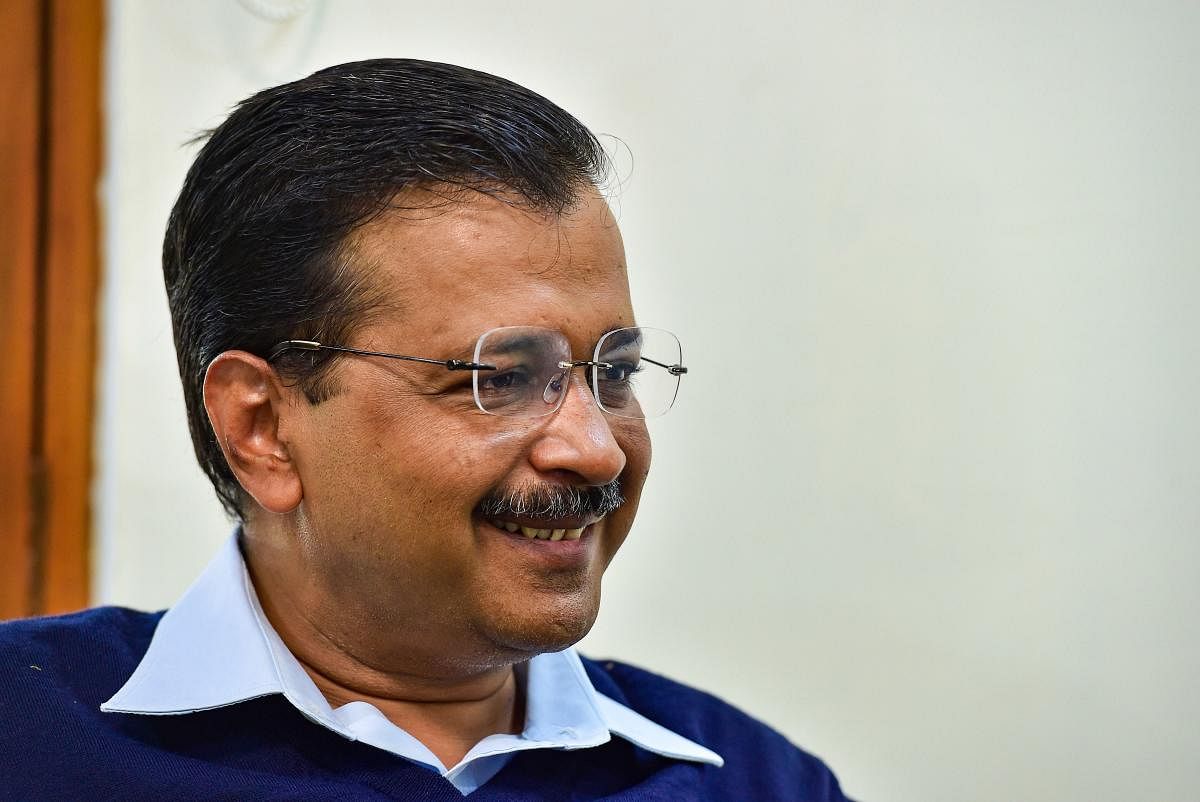
From perpetual protester and ‘anarchist’, Arvind Kejriwal has now emerged as the newest poster boy of good governance. While Kejriwal’s win in the 2020 Delhi elections is huge, his newfound status may have a bearing beyond Delhi – and this is where the real significance of this election lies.
No other party has handed such a clear-cut election drubbing to the BJP in recent times, that too in a super-charged direct contest where the BJP worked overtime to polarise votes. This was a bare-knuckled fight and Kejriwal knocked out the BJP’s powerhouse players fair and square (even if the latter played dirty and in the process managed to walk away with a marginal improvement in seats and a better vote share).
In short, this is ‘AK’s’ win just as 2014 and 2019 were Narendra Modi’s. And BJP strategists will remember this lesson when nursing their wounds after this bruising defeat.
The Kejriwal sutra
So how did the man, who began his life as an anti-corruption crusader in the Anna-movement less than a decade ago, pull off the AAP’s biggest victory to date in symbolic terms?
If we were to lay it down – let's call it the Kejriwal sutra – then it involved: 1. Saying ‘No’ to a direct confrontation with Narendra Modi (Rahul Gandhi may find this tip handy). 2. Refusing to work to the political script of the BJP whether in terms of directly responding to policies of the Central government or the larger attempt at polarisation. 3. Focussing very closely on the work that the AAP itself did in Delhi over the last five years.
But backing up all this was a trick that Kejriwal stole from Modi’s own playbook. Kejriwal is now as much a brand in Delhi as Modi was in Gujarat during his initial terms as CM. In an era of personality-based politics, Kejriwal knew that it mattered how he was perceived and he played the role of a simple, honest-to-goodness, development focussed ‘patriot’ with the right values to the hilt.
He did not shy away from displaying his Hindu credentials, chanting 'Hanuman Chalisa' or visiting temples. If you asked him about Shaheen Bagh or the Citizenship Amendment Act (CAA), he retorted by speaking about jobs and power bills. He’s now branded his kind of politics as ‘kaam ki raajneeti’.
The core of the AAP campaign focussed on a development pitch around the party’s work in the past five years during which it doled out subsidies on water and power – ‘freebies’ that voters may have found hard to resist – and the effort it put in to improve the education and health sectors. But all along, the superstructure on which this promise of development was carried was Kejriwal’s dependable shoulders.
The AAP strategy, fine-tuned by election strategist the Prashant Kishor-led I-PAC, seems to have worked like a charm. The results reverse the setback the party faced in the 2019 Lok Sabha elections. From the 2015 Assembly polls, when it garnered 54.59 per cent of the votes to capture 67 seats, the AAP’s performance was sliding continuously. The municipal polls two years later saw the AAP getting just 26.23 per cent of the votes – it lost half of the votes it won in 2015 – and it further slumped to 18.11 per cent in the May 2019 general elections when it came third behind the BJP and the Congress.
But over the years, the AAP learnt the trick of switching on and switching off its 'confrontation' mode. If it walked out of power after 49 days in 2013, the post-2015 AAP was different. Kejriwal and AAP kept their eyes on the 2020 polls and they changed gears after the depressing Lok Sabha results.
While all of this sounds like a made-to-order formula for success, is this model scaleable and what impact will it have on Indian polity?
Here are the big drawbacks of this plan: The AAP’s silence on contentious issues may have an impact on the larger political narrative against the BJP, which the Opposition wants to build. Neither Kejriwal nor other Opposition parties dare to elaborate their stand on contentious issues fearing the BJP's "polarisation" ability.
The strategy may sound fine when it comes to winning elections and keeping the BJP away from local elections but it inadvertently helps in furthering the Saffron party’s agenda. So the question really is whether this will work for or against the BJP in a larger political scenario.
All in all, much depends now on the political instincts that Kejriwal displays to take his campaign national, ample signs of which his party has already broadcast.
